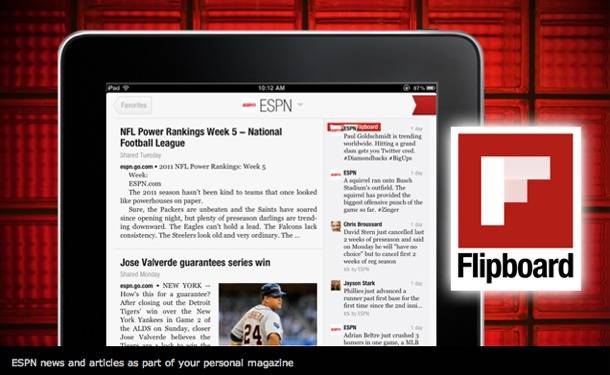What do you do when you have a treasure trove of valuable data that developers would love to get their hands on? Release an API and let them create applications for you. That is precisely what sports network ESPN did today by announcing its Developer Center replete with multiple APIs for programmers. Developers can tap into ESPN’s reservoir of data on athletes, teams, media, stats and research to create sports apps with rich data for fans across the world.

This is not a classic free API platform though. ESPN is owned by ABC, which is owned by Disney. Disney is not known for sharing nicely. Developers can use ESPN’s headlines API for free but otherwise have to form a brand partnership with the sports giant. Yet, considering ESPN’s prowess and well of rich data, that may not be a bad thing.

ESPN’s APIs
There are six APIs in ESPN’s new developer center. The only one that does not require a premium partnership with the network is the headlines API that allows developers to grab content from the company covering sports and athletes. The other five can only be used by ESPN “premium partners” or the network itself.
There are a lot of things to like in those five APIs. One of the great strengths of ESPN is the ability to track sports information in real time and store it in a database. For instance, if you have ever followed a sports game from your mobile device or computer, ESPN’s “GameCenter” application is one of the marvels of modern sports reporting. Individual leagues track their own games such as similar services from the MLB, NHL, NFL and NBA but the difference between other leagues and ESPN is that the network tracks every game, everywhere. Looking up to the second updates on yesterday’s Creighton vs. Illinois State game? GameCenter has it in almost real-time. The other large sports networks can do this as well (such as Yahoo and CBS Sports) but when it comes to data and developers, ESPN is winning the race.
Here are the benefits of the six APIs with descriptions from ESPN:
- Athletes: “Allows you to get rosters of players for various sports, as well as biographical and statistical data for individual athletes.”
- Research Notes: “Allows you to tap into ESPN’s vast knowledgebase of exclusive sports data tidbits compiled by our Stats and Information Group. Research Notes are available by sport, athlete, team, and even game.”
- Standings: “Enables you to get the latest standings for a particular sport by division, conference, or overall. Data is also available by year and by season type (preseason, regular season, playoffs).”
- Headlines: “Allows you to interact with ESPN’s various news stories. ESPN publishes hundreds of unique pieces of text content each day, covering dozens of sports and hundreds of athletes and teams.”
- Scores & Schedules: “Provides game/match information, including start times, venue, competitors, score, and stats across every major sport.”
- Teams: “Enables you to get information, including roster, stats, and more, for individual teams. You can also fetch teams by conference or division.”
What can be Built?
ESPN showcases a couple stalwart applications that use its APIs such as Flipboard and Pulse. It also shows the Brigham Young Cougars app that leverages the scores API to keep track of all things BYU. Foursquare uses the schedule and research APIs to check into sporting events. There are so many more useful functions for these APIs than just news readers and specific teams.

For instance, fantasy sports gurus could tap into ESPN’s data to provide real-time insight and analysis to their apps. Trivia apps can get almost any sports answer in a matter of seconds. Niche sports sites can provide rich data on matchups and schedules and locations. For instance, the Colonial Athletic Association (CAA) is having its basketball championship tonight. Tapping into ESPN data can provide readers better context into a league that is otherwise overlooked by those not associated with it.
ESPN also has an advanced statistics group that crunches numbers and gives the biggest stat heads all the information and context they can consume. Being a baseball fan that analyzes advanced stats, it would be helpful to me if a developer took the raw data out of ESPN and created visualizations and dynamic charts. There are other sources on the Web where this information is available but to my knowledge none of them release it as an easy to use API.
Working With ESPN
This is where it gets tricky. ESPN wants you to have this data … it just does not want you to profit from it. That is reasonable considering it is ESPN’s data. Opening up this data as a platform is a way for the company to brand itself across multiple applications. It is important to read the fine print.

Developers cannot advertise in an application that uses ESPN APIs except through specific network approved ads. Presumably ESPN would split revenues with developers from those apps but the terms of service make no specific mention of sharing.
“ESPN may make available to you a Tool or other API that permits you to include ESPN-approved advertising in your Apps. Unless otherwise set forth in the Information Form or on a separate “Advertising Addendum,” you may not include any advertising or sponsorship in your App (unless included in the Content made available by ESPN).”
ESPN is not Facebook. When Facebook opened its platform in 2007 is was a revelation on how a platform can open itself to be built upon and let everybody grow and prosper. Facebook created the blueprint for what it takes to create a successful developer program and platform. As for as open platforms go, ESPN’s developer program is one of the most closed systems of rich data that we have seen. Essentially the network is saying, “here is out data but play by our rules and make sure we get all the credit for everything you do.” While the API may be an enlightened idea from a sports network, its terms are not.

















